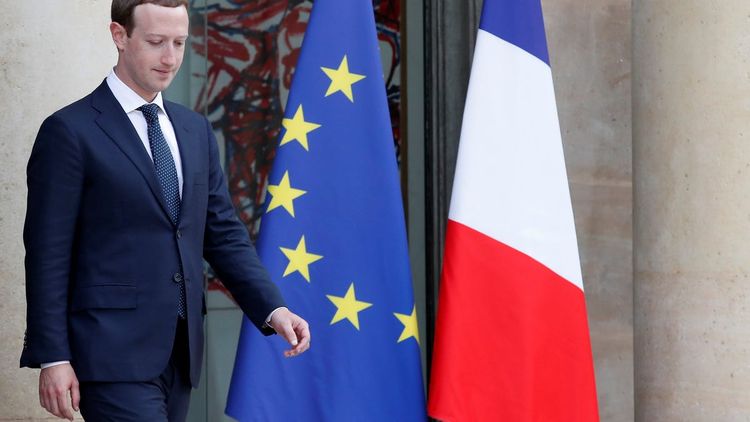How Europe's new digital privacy act will change Big Tech regulation

The expansive fresh legislation regarding digital privacy protection in the European Union (EU) became active on Friday (Aug. 25), commencing a brand-new chapter for major technology companies in Europe.
The surge in artificial intelligence and the subsequent rise in stocks unrelated to technology
The set of regulations called the Digital Services Act (DSA) can be considered the most stringent collection of privacy laws in the world relating to technology. It expands on the Digital Markets Act that was introduced last year, which primarily aimed at implementing changes to promote fair competition among major tech companies. The DSA, on the other hand, has a distinct focus. Its main objective is to safeguard the interests of individual users and inhibit the dissemination of detrimental content and false information on the internet.
"The DSA is dedicated to safeguarding the freedom of expression from unfounded judgments while simultaneously safeguarding our citizens and democracies from illicit content," stated Thierry Breton, the European Commissioner responsible for internal market affairs, in a video shared on Twitter. "My team and I will rigorously scrutinize platforms to ensure their compliance with the DSA."
DSA: What Is Its Role?
Primarily, the legislation requires technology platforms to ensure that users can easily comprehend the functioning of the website. This fundamental principle encompasses regulations such as enhancing the clarity of content moderation procedures, obligating pornography websites to disclose the identities of content uploaders, and providing explicit explanations about content recommendation mechanisms.
The law also intends to regulate the algorithms themselves. A contentious aspect of this legislation prohibits companies from employing what are known as "dark patterns," which entail deceitful tactics to encourage users to click on material they did not initially intend to access, such as reality TV shows or videos promoting the recruitment of ISIS.
Additionally, it prohibits the use of surveillance advertising (targeted adverts based on users' online behavior and search records) for individuals under the age of 18. In a previous version of the legislation, there was a complete prohibition on surveillance advertising; however, this provision was effectively weakened by lobbyists representing technology companies. Customized advertising plays a significant role in generating revenue for companies such as Google and Meta.
Which Websites Does The DSA Cover?
The complete rules of the DSA are specifically for 19 websites that cater to a massive user base of over 45 million individuals in the European Union, accounting for around 10% of the entire population of the economic bloc.
Even though several websites are global and function beyond the European Union, the recently implemented regulations solely affect the activities carried out by these companies within Europe.
Meta plans to cease displaying personalized advertisements to users in Europe who are 17 years old and younger. Additionally, they are rolling out a new feature that allows European users to browse Reels, Stories, and Search functions without the interference of an algorithm determining the subsequent video. Following this move, Google has also disclosed comparable changes. They intend to offer more data to researchers in the European Union who are investigating "systemic content risks."
Businesses that have less than 45 million users are exempted from adhering to all regulations imposed by the DSA. Additionally, they will be granted an additional half-year to ensure their compliance with the legislation.
Enforcing The DSA: What To Expect
If the initial 19 companies fail to adhere to the updated regulations, they face the possibility of being fined up to 6% of their company's worldwide earnings, potentially amounting to $16 billion for a company of Google's magnitude. Moreover, there is also the potential threat of being prohibited from conducting business in the European Union market.
Nevertheless, these punishments will not come into effect immediately. In the beginning, the technology companies are advised to carry out internal evaluations of the extent to which they already adhere to the rules, which is expected to be completed in the upcoming weeks. Subsequently, the European Commission intends to scrutinize those assessments and provide suggestions on the actions the companies need to undertake if they fail to comply.
EU court declares that Meta's targeted advertisements breach privacy rights.
???? The recent European Union fine imposed on Meta is almost equal to the total sum of the previous six fines the company received.
???? Activision reluctantly relinquished its cloud streaming service to successfully finalize the agreement with Microsoft.





